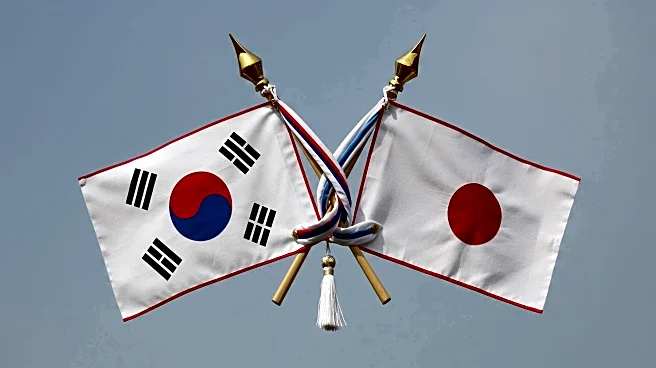What's Happening?
South Korean President Lee Jae Myung and Japanese Prime Minister Shigeru Ishiba met in Tokyo on August 23, 2025, to discuss ways to overcome historical tensions and enhance cooperation. This meeting marked President Lee's first international visit as leader, highlighting the importance of Japan-South Korea relations. The leaders issued a joint statement, the first in 17 years, emphasizing the need to work together on international challenges and advance mutually beneficial interests. The meeting focused on economic and security cooperation, aiming to set aside historical disputes, including issues related to wartime labor and comfort women, which have previously strained relations.
Why It's Important?
The agreement between South Korea and Japan to strengthen ties is crucial for regional stability and economic growth. By addressing historical grievances and focusing on future-oriented cooperation, both countries can enhance their strategic positions in Asia. This development is particularly significant given the geopolitical tensions in the region, including North Korea's nuclear ambitions and China's growing influence. Improved relations between South Korea and Japan could lead to stronger alliances with the United States, their mutual ally, and contribute to a more balanced power dynamic in the region. The focus on economic and security cooperation also underscores the importance of collaboration in addressing global challenges.
Beyond the Headlines
The meeting between South Korea and Japan carries deeper implications for regional diplomacy and historical reconciliation. By prioritizing cooperation over past disputes, both countries are setting a precedent for addressing historical issues through dialogue and mutual understanding. This approach could serve as a model for other nations with similar historical conflicts. Additionally, the emphasis on economic and security collaboration highlights the interconnectedness of global challenges and the need for collective action. The joint statement issued by the leaders reflects a commitment to building a future-oriented partnership, which could have long-term benefits for both countries and the broader international community.










